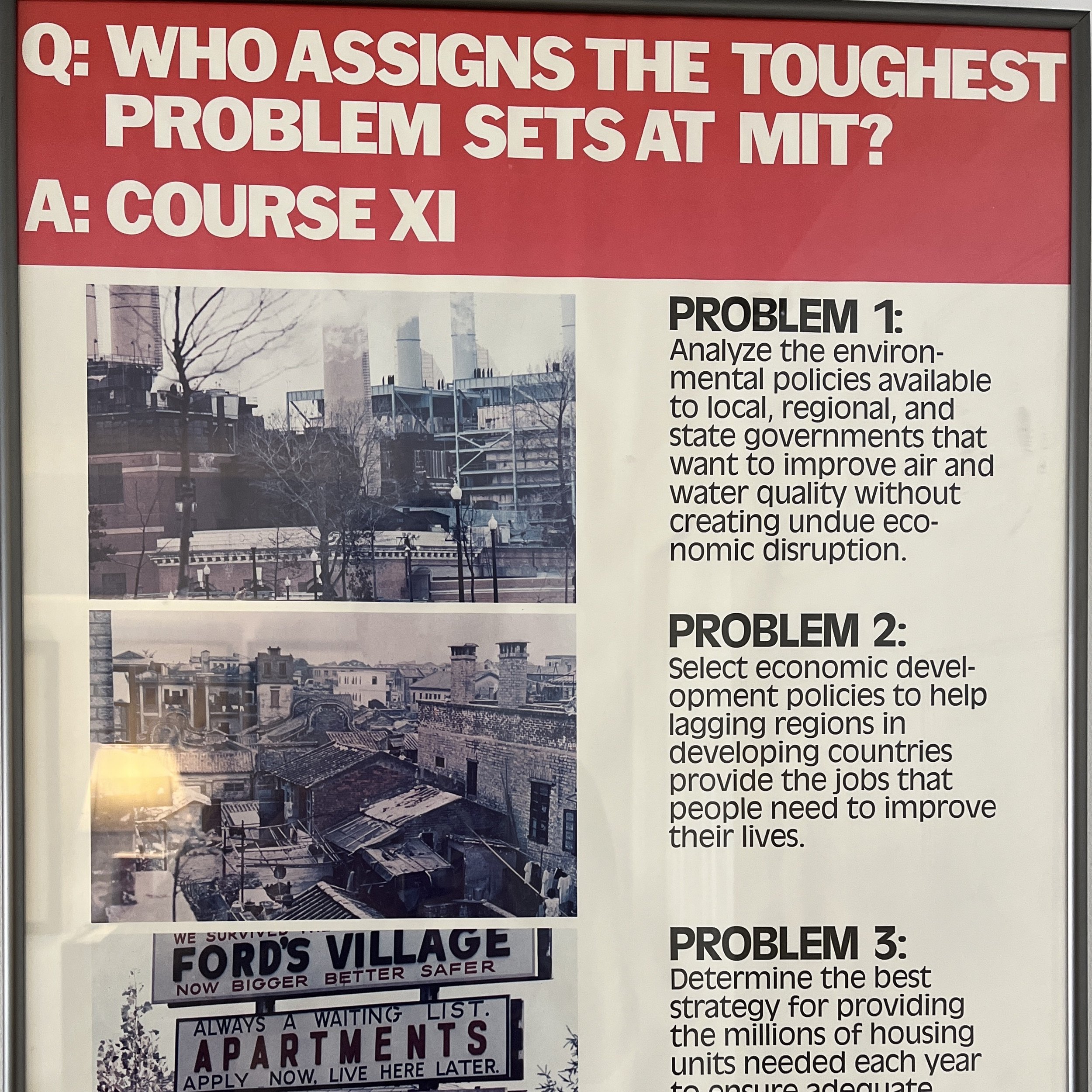The Problem with “Rigor”
This poster was created in the late 1970s to attract MIT undergraduates to Urban Studies (Course IX) courses—a tough sell in a place where these courses were regarded as “soft” and lacking rigor. This poster used the prevailing value system at MIT—elevating “toughness”—to make the case that urban problems are REALLY hard in a way that is invisible to those who focus on the purely technical. Larry Bacow, now the president of Harvard, was leading the undergraduate program at the time this brilliant poster was produced.
When you try to change how things are done in the academy, you are often tripped up by discussions of “rigor.” Let’s try to unpack this. It’s a frequent stumbling block for those who want to adopt a Thinking With Things approach, and is also weaponized against those who want to make sure that pedagogy is inclusive for women and people of color.
As an example, I write this as I sit in a symposium on electronic tangibles in computer science (CS) education. The faculty here generally believe that using robotics and other interactive materials is an effective way to engage and teach students, but they also struggle against the perception that these are “toys” and not serious. Yet if these materials remove some of the unnecessary barriers and help focus students’ minds on the essential ideas, it’s all to the good.
Curriculum changes designed to attract and retain women or other under-represented groups in computer science are sometimes decried, even by supporters of diversity, as a decline in the “rigor” of the program. The implication is that an alteration in the curriculum (to accommodate women) means a “dumbing down” of courses and of a program as a whole. In fact, it is neither necessary nor desirable to dumb down the curriculum. The most important changes we can make in CS curricula will retain a program’s intellectual challenge while removing unnecessary barriers to participation and success.
Computer Science curricula can be “difficult” in different ways. To borrow an idea from Fred Brooks in his classic essay “No Silver Bullet,” there are two types of “hard” that can be present in a CS curriculum—essential difficulty and accidental difficulty. The essential difficulties of CS are those that cannot be removed—the complexity of systems, the need for clear and logical thinking, and so forth. The accidental difficulties are those that are not intrinsic to work in the field—like bad pedagogy, unnecessary requirements for courses that few practitioners will ever use, isolation and the absence of mentoring, the “chilly climate” of many CS programs, and so on. We should be working to fix the accidental difficulties so that students can creatively and energetically tackle the essential challenges. This is NOT a dumbing down of courses or curricula.
The American Heritage dictionary defines “rigor” as strictness or severity, a harsh or trying circumstance, or a harsh or cruel act. In this context, it is tempting to see any loss of rigor as an improvement.
From now on, whenever someone uses the word “rigor” in a discussion of curricular change, take is as a flashing red warning light. We should be clear that we are NOT lowering standards. We are removing unnecessary barriers and enhancing the qualities that make work in CS interesting and engaging. In other words, we are aiming to level the playing field.

